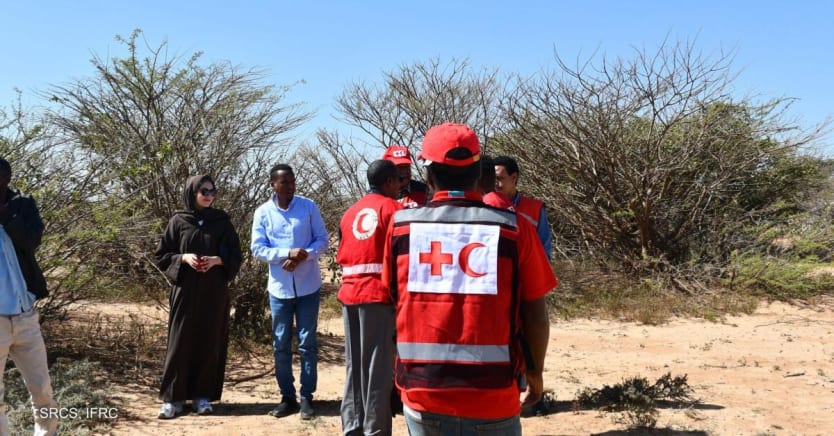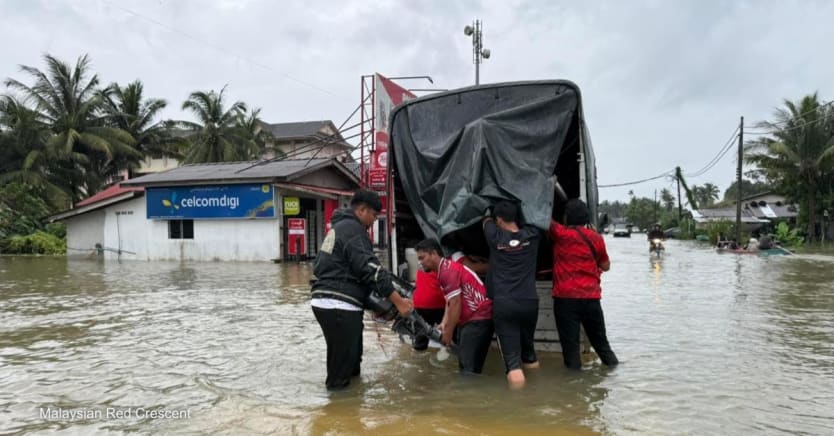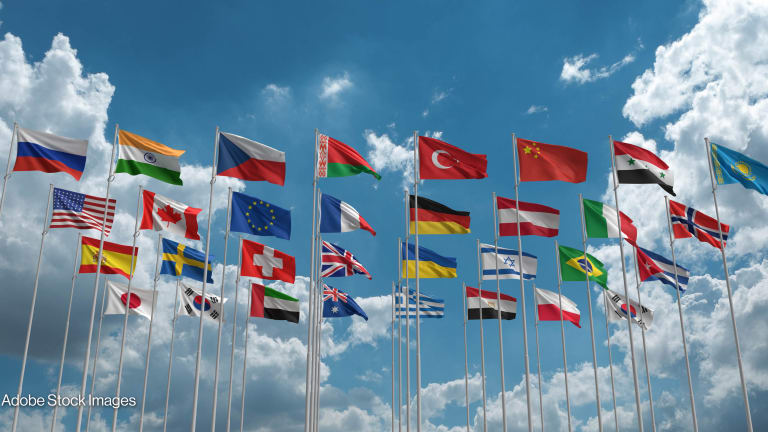
Not long ago, it seemed shocking enough to describe our era as one of “polycrisis”. The phrase suggested people might face multiple crises at once.
But even if crises overlapped, or even multiplied each other, a period of polycrisis was at least finite; it would pass. For many, that’s no longer the case. Polycrisis has become “permacrisis” — long or permanent periods of crisis with people having little or no time to recover from one shock before being shaken by another.
How to break the unrelenting cycle?
One way to navigate this challenge is to apply agile and adaptable humanitarian responses. Establishing a framework for that was, in part, the aim of the recent resolutions of our statutory meetings. The International Red Cross Red Crescent Movement, together with states, came together at our international conference determined to build consensus about pathways forward.
And we did. As well as adopting resolutions committing to revitalize International Humanitarian Law and address the dangers of digital technologies in conflict zones, we focused on three other critical areas: supporting local leadership, preparing for climate-related disasters, and strengthening disaster risk governance. Together, these resolutions form a strategic road map to help communities navigate a world where overlapping, long-term crises have become the norm.
Supporting local leadership
One of the most significant resolutions adopted at the international conference emphasizes the importance of enabling local leadership and strengthening resilience in humanitarian action. The resolution highlights that effective and sustainable humanitarian responses must be rooted in local knowledge, capacity, and decision-making.
In practice, this means investing in National Red Cross and Red Crescent Societies and local organizations to ensure they have the resources and authority to lead during crises and, better still, before they hit. Take migration-related challenges, for example. Humanitarians already on the ground — who know the local conditions and context — are best placed to respond to flows of people with always disparate and, too often, desperate, needs. The resolution’s call for equitable partnerships and streamlined funding ensures that these stakeholders can act quickly and effectively, even in complex environments.
Local voices are not just participants in our work; they are the drivers of our success. By strengthening their leadership, we ensure that humanitarian action is more relevant, inclusive, and impactful. To have had virtually every country on Earth recognize this, and sign up to this, should ensure a worldwide commitment to putting decision-making, money, and, with both, power in the hands of the people closest to the problems — and best placed to affect change.
Preparing for climate-related disasters
Another key resolution focuses on protecting people from the humanitarian impacts of extreme climate and weather events by strengthening anticipatory action. With climate change increasingly displacing populations and exacerbating vulnerabilities, the ability to act before disasters strike is essential. Doing so effectively can even mean hazards strike, but disasters are averted.

This resolution encourages states to integrate early warning systems and predictive technologies into their disaster risk management frameworks. We know this works. Anticipatory action has saved lives in countries such as Bangladesh — ahead of heavy rains — and across the small island states of the Pacific, increasingly hit by cyclones but increasingly able to deal with them having prepared for them. Again, having the world’s governments come together and — by consensus — agree with the Red Cross Red Crescent’s emphasis of the importance of anticipatory action means it’s far more likely to be enshrined in the future.
Strengthening disaster risk governance
When the 2004 tsunami hit, the response to it in some countries was hampered by insufficient preparation for who does what and how when catastrophe strikes. Since then, many countries have gotten much better at establishing frameworks through so-called disaster laws. A third resolution passed, again by consensus at our international conference, called for clear national policies from all countries, better coordination among all stakeholders, and greater inclusion of marginalized groups when it comes to framing disaster laws.
“Frameworks” and “governance” sound theoretical, as though unrelated to real life. But when needed, when the unexpected happens, good versions of them make the difference between an effective response and one that can, at worst, compound a crisis. A worldwide push for effective disaster law — which is what our resolution, in practice, means — will ensure that future disaster responses are faster, more effective, and save lives.
Connecting the dots: Resolutions in real-world context
Taken together, these resolutions provide a comprehensive toolkit for addressing the realities of a permacrisis world. For migrants and displaced populations, for example, they offer pathways to better protection, more inclusive governance, and faster, locally driven responses. They also reflect the Red Cross Red Crescent Movement’s commitment to acting as both a humanitarian-first responder and a partner to governments and others to shape systems that prevent and mitigate crises.
The challenges we face are immense, but the consensus built at the international conference demonstrates that collective action is possible. We’ll never get to an era of “no crisis”, but eras of “less crisis” or even “better managed crisis” are possible. Resolutions like those passed at our International Conference — and holding states to account for them — will help us move on from “permacrisis” and toward eras more benign.









